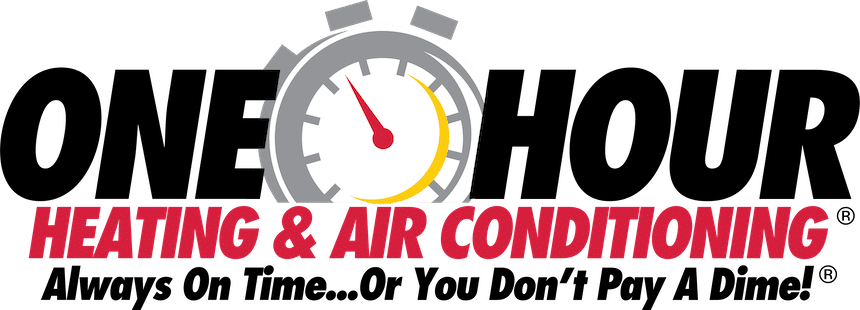HVAC Solutions – Are you looking for the most efficient HVAC solutions in Coastal Georgia? Solar-powered HVAC systems could be your answer.
Energy efficiency in HVAC systems is crucial. Traditional HVAC systems consume a lot of energy, leading to high utility bills. In contrast, solar-powered systems use the sun’s energy, significantly reducing energy consumption. This shift to renewable energy is especially beneficial in Coastal Georgia, where sunlight is abundant.
As we dive deeper into this topic, you’ll discover how these systems work and why they are the best choice for homes in Coastal Georgia.
Importance of Energy Efficiency in HVAC Systems
Energy efficiency in HVAC systems is crucial for several reasons. First, it reduces energy consumption, leading to lower utility bills. With the rising costs of electricity, this is a significant benefit.
Additionally, energy-efficient systems are better for the environment. They reduce greenhouse gas emissions, helping to combat climate change. For homeowners in Savannah, Port Royal, and Hardeeville, these benefits are particularly appealing.
Benefits of Solar-Powered Systems in Coastal Georgia
Solar-powered HVAC systems harness the sun’s energy, converting it into electricity to power your heating and cooling needs. This is especially advantageous in Coastal Georgia due to its high solar insolation levels. The sun shines brightly and consistently, providing a reliable energy source.
How Solar-Powered HVAC Systems Work
Understanding the basics of how solar-powered HVAC systems work can help you make an informed decision.
Basic Principles of Solar Energy
Solar energy is captured through photovoltaic (PV) panels, which convert sunlight into direct current (DC) electricity. This DC electricity is then converted into alternating current (AC) by an inverter, making it usable for home appliances, including HVAC systems.
Integration with HVAC Systems
The integration of solar energy with HVAC systems involves connecting the solar panels to your home’s electrical system. This setup allows your HVAC system to draw power from the solar panels during sunny days. Excess energy can be stored in batteries or fed back into the grid, depending on the system design.
Advantages of Solar-Powered HVAC Solution for Coastal Regions
Cost Savings and Energy Efficiency
One of the main advantages of solar-powered HVAC systems is the potential for cost savings. By generating your own electricity, you can significantly reduce your utility bills. Over time, the savings can offset the initial investment in the system. Additionally, solar energy is a renewable resource, making it a more sustainable option compared to fossil fuels.
Environmental Impact and Sustainability
Solar-powered HVAC solutions have a lower environmental impact than traditional systems. They reduce reliance on non-renewable energy sources and decrease greenhouse gas emissions. This is particularly important in coastal regions, where rising sea levels and extreme weather events are linked to climate change. By choosing solar-powered HVAC, homeowners in Savannah, Port Royal, and Hardeeville can contribute to a more sustainable future.
Enhanced Performance in Humid Climates
Solar-powered HVAC solutions can perform well in humid climates like Coastal Georgia. High humidity levels can strain traditional HVAC solutions, leading to higher energy consumption and costs. Solar-powered systems can be more efficient, as they are designed to handle varying weather conditions. This can result in better performance and lower operating costs.
Top 5 Solar-Powered HVAC Solutions for Savannah
Solution 1: Detailed Description and Benefits
One of the top solar-powered HVAC solutions in Savannah is the SolarEdge SE7600H-US HD-Wave Inverter. This system is known for its high efficiency and reliability. It offers a compact design and easy installation, making it a popular choice among homeowners. The SolarEdge system integrates with various HVAC units, providing seamless energy conversion and usage.
Benefits of this system include significant cost savings, reduced environmental impact, and enhanced performance in humid climates. Homeowners can expect lower utility bills and a smaller carbon footprint. Additionally, the system’s high efficiency ensures optimal performance, even during peak usage periods.
Solution 2: Detailed Description and Benefits
Another excellent solar-powered HVAC solution for Savannah is the LG NeON 2 335W Solar Panel. This system is known for its high efficiency and durability. The LG NeON 2 panels are designed to withstand harsh weather conditions, making them ideal for coastal regions.
Benefits of the LG NeON 2 system include high energy output, long-term reliability, and reduced maintenance costs. Homeowners can enjoy lower energy bills and a dependable power source. The system’s durability ensures it can withstand the coastal climate, providing long-term savings and sustainability.
Top Solar-Powered HVAC Solutions for Port Royal
Solution 1: Detailed Description and Benefits
In Port Royal, one of the top solar-powered HVAC solutions is the Enphase IQ7+ Microinverter. This system is known for its high efficiency and flexibility. The Enphase IQ7+ can be easily integrated with various solar panels and HVAC units, providing a versatile and reliable energy solution.
Benefits of the Enphase IQ7+ system include increased energy production, enhanced reliability, and reduced maintenance costs. Homeowners can expect lower utility bills and a more sustainable energy source. The system’s flexibility ensures it can adapt to different energy needs, providing a tailored solution for each home.
Solution 2: Detailed Description and Benefits
Another top solar-powered HVAC solution for Port Royal is the Panasonic HIT N330 Solar Panel. This system is known for its high efficiency and performance. The Panasonic HIT N330 panels are designed to maximize energy production, even in low-light conditions.
Benefits of the Panasonic HIT N330 system include higher energy output, improved performance in various weather conditions, and long-term reliability. Homeowners can enjoy lower energy bills and a dependable power source. The system’s high efficiency ensures optimal performance, even during cloudy days.
Top Solar-Powered HVAC Solutions for Hardeeville
Solution 1: Detailed Description and Benefits
In Hardeeville, one of the top solar-powered HVAC solutions is the SMA Sunny Boy 7.7-US Inverter. This system is known for its high efficiency and ease of use. The SMA Sunny Boy 7.7-US can be easily integrated with various solar panels and HVAC units, providing a reliable and efficient energy solution.
Benefits of the SMA Sunny Boy system include increased energy production, enhanced reliability, and reduced maintenance costs. Homeowners can expect lower utility bills and a more sustainable energy source. The system’s ease of use ensures it can be quickly installed and maintained, providing long-term savings and efficiency.
Solution 2: Detailed Description and Benefits
Another excellent solar-powered HVAC solution for Hardeeville is the SunPower X-Series Solar Panels. This system is known for its high efficiency and durability. The SunPower X-Series panels are designed to withstand harsh weather conditions, making them ideal for coastal regions.
Benefits of the SunPower X-Series system include high energy output, long-term reliability, and reduced maintenance costs. Homeowners can enjoy lower energy bills and a dependable power source. The system’s durability ensures it can withstand the coastal climate, providing long-term savings and sustainability.
How to Choose the Right Solar-Powered HVAC Solutions
Factors to Consider
When choosing the right solar-powered HVAC solutions, several factors should be considered. These include the system’s efficiency, cost, and compatibility with your home’s existing infrastructure. Additionally, it’s important to consider the climate and weather conditions in your area. Coastal regions like Savannah, Port Royal, and Hardeeville require systems that can withstand high humidity and salt exposure.
Cost vs. Benefits Analysis
A cost vs. benefits analysis can help you determine the best system for your needs. While the initial investment in a solar-powered HVAC system can be high, the long-term savings on utility bills and maintenance costs can offset this expense. Additionally, many states offer incentives and rebates for installing solar-powered systems, further reducing the overall cost.
HVAC Solutions: Installation Process and Considerations
Step-by-Step Installation Process
The installation process for solar-powered HVAC solutions involves several steps. First, a site assessment is conducted to determine the best location for the solar panels. Next, the panels are installed on your roof or another suitable area. Once the panels are in place, the system is connected to your home’s electrical system. Finally, the HVAC unit is integrated with the solar power system, and the entire setup is tested to ensure it’s working correctly.
Common Challenges and Solutions
Common challenges during the installation process can include finding the right location for the panels, ensuring proper electrical connections, and integrating the HVAC unit with the solar power system. However, these challenges can be overcome with careful planning and professional installation. Hiring a qualified installer can ensure the process goes smoothly and the system operates efficiently.
Maintenance Tips for Solar-Powered HVAC Solutions
Regular Maintenance Routines
Regular maintenance is essential for keeping your solar-powered HVAC system running smoothly. This includes cleaning the solar panels, checking for any damage or wear, and ensuring the electrical connections are secure. Additionally, it’s important to schedule regular inspections of the HVAC unit to ensure it’s operating efficiently.
Troubleshooting Common Issues
Common issues with solar-powered HVAC solutions include reduced energy production, system malfunctions, and wear and tear on the panels or HVAC unit. Troubleshooting these issues can involve checking the system’s components for damage, ensuring the panels are clean and unobstructed, and consulting with a professional installer if necessary.
HVAC Solutions: Cost Analysis and Incentives
Initial Investment and Long-Term Savings
The initial investment in a solar-powered HVAC system can be high, but the long-term savings can make it worthwhile. By generating your own electricity, you can significantly reduce your utility bills. Additionally, solar-powered systems require less maintenance and have a longer lifespan than traditional systems, further reducing costs over time.
Available Incentives and Rebates in Georgia
In Georgia, there are several incentives and rebates available for installing solar-powered systems. These can include federal tax credits, state incentives, and utility rebates. These incentives can significantly reduce the overall cost of the system, making it more affordable for homeowners.
Innovations in Solar-Powered HVAC Technology
Latest Advancements and Trends
The field of solar-powered HVAC technology is constantly evolving, with new advancements and trends emerging regularly. These can include improvements in solar panel efficiency, new integration methods with HVAC systems, and innovative energy storage solutions. Keeping up with these advancements can help homeowners choose the best system for their needs.
Future Outlook for Solar HVAC Solutions
The future outlook for solar-powered HVAC solutions is promising. As technology continues to improve and costs decrease, more homeowners are likely to adopt these systems. This can lead to increased energy efficiency, reduced environmental impact, and significant cost savings.
Comparing Solar-Powered HVAC with Traditional Systems
Performance
When comparing solar-powered HVAC systems with traditional systems, performance is a key factor. Solar-powered systems can offer comparable, if not better, performance, especially in sunny and humid climates. They can provide consistent energy output and reliable heating and cooling.
Cost-Efficiency
Cost efficiency is another important factor. While the initial investment in a solar-powered system can be high, the long-term savings on utility bills and maintenance costs can make it more cost-effective than traditional systems. Additionally, the availability of incentives and rebates can further reduce the overall cost.
Environmental Impact
The environmental impact of solar-powered HVAC systems is significantly lower than that of traditional systems. By using renewable energy, solar-powered systems reduce greenhouse gas emissions and reliance on non-renewable resources. This makes them a more sustainable and environmentally friendly option.
Integration with Smart Home Technology
As smart home technology becomes more prevalent, integrating it with solar-powered HVAC systems can offer additional benefits. Smart thermostats, for example, can optimize the use of solar energy by adjusting heating and cooling settings based on weather patterns and energy production levels. This can further enhance energy efficiency and cost savings.
Customization and Scalability
Solar-powered HVAC systems can be customized and scaled to meet the specific needs of different households. Whether you have a small home or a large property, there are systems available that can be tailored to your energy requirements. This flexibility makes solar-powered HVAC a viable option for a wide range of homeowners.
The Role of Battery Storage
Battery storage can enhance the efficiency of solar-powered HVAC systems by storing excess energy generated during the day for use at night or during cloudy periods. This can ensure a consistent energy supply and further reduce reliance on the grid. Advances in battery technology are making these systems more efficient and affordable.
Understanding Solar Panel Warranties
When investing in solar-powered HVAC systems, it’s important to understand the warranties offered on solar panels. Most high-quality panels come with warranties that cover both performance and product integrity for 25 years or more. Understanding these warranties can help ensure you’re making a sound investment.
The Impact of Local Weather Conditions
Local weather conditions can significantly impact the performance of solar-powered HVAC systems. Coastal regions like Savannah, Port Royal, and Hardeeville experience high humidity and occasional storms, which can affect energy production. Choosing durable and efficient systems designed for these conditions is crucial.
Choosing a Reliable Installer
Choosing a reliable installer is essential for ensuring the proper installation and maintenance of your solar-powered HVAC system. Look for installers with experience, certifications, and positive customer reviews. A good installer can provide valuable advice and support throughout the life of your system.
Financial Planning for Solar Investments
Financial planning is an important aspect of investing in a solar-powered HVAC system. Consider the initial costs, potential savings, available incentives, and financing options. Proper financial planning can help you maximize the return on your investment and ensure long-term benefits.
Understanding Net Metering
Net metering allows homeowners to feed excess solar energy back into the grid in exchange for credits on their utility bills. Understanding how net metering works in your area can help you maximize the financial benefits of your solar-powered HVAC system.
The Importance of Energy Audits
Conducting an energy audit can help you identify areas where you can improve energy efficiency in your home. An energy audit can reveal leaks, insulation issues, and other factors that affect your home’s energy use. Addressing these issues can enhance the performance of your solar-powered HVAC system.
The Role of Government Policies
Government policies and regulations can impact the adoption and efficiency of solar-powered HVAC systems. Stay informed about local, state, and federal policies that can affect incentives, rebates, and installation requirements. Understanding these policies can help you make informed decisions.
FAQs
- How long do solar-powered HVAC systems last?
Solar-powered HVAC systems can last 20-30 years, with regular maintenance.
- Are solar-powered HVAC systems effective in cloudy weather?
Yes, they can still produce energy in cloudy weather, but at reduced efficiency.
- What is the initial cost of installing a solar-powered HVAC system?
The initial cost varies, but incentives and rebates can help reduce it.
- How much can I save with a solar-powered HVAC system?
Savings can vary, but many homeowners report reductions of 50-70% on their utility bills. The exact amount depends on factors like energy usage, local climate, and system efficiency.
- Do solar-powered HVAC systems require a lot of maintenance?
No, they generally require less maintenance than traditional systems. Regular cleaning of the solar panels and occasional inspections of the HVAC components are usually sufficient to ensure optimal performance.
Solar-powered HVAC solutions offer numerous benefits, especially for homeowners in Coastal Georgia. These systems provide significant cost savings, reduced environmental impact, and enhanced performance in humid climates. By harnessing the power of the sun, you can achieve greater energy efficiency and sustainability in your home.
Have you considered switching to a solar-powered HVAC system? What benefits are you most excited about?











